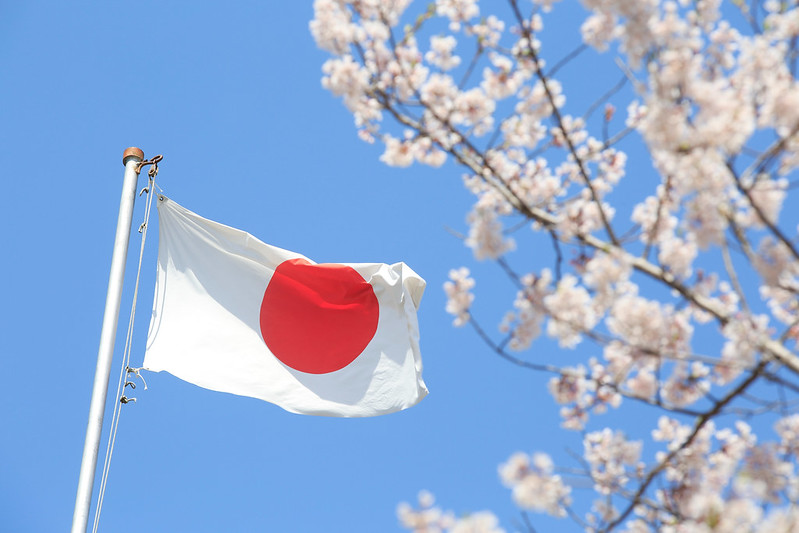The Everyday Magic of Onsen in Japanese Life
For Japanes people, onsen or hot springs are an indispensable part of life. From bustling white-collar workers to elders in the countryside, the mention of onsen invariably brings a gentle smile and an appreciative "Yoi ne" (meaning "that's good").

Imagine a weekend trip to an onsen in Yamanashi Prefecture during the peak of cherry blossom season. The open-air baths are enveloped in swirling steam and warm mist, with cherry petals gently falling into the water, drifting between one's skin. This scene evokes a feeling of "paradise on Earth," a truly blissful experience.
A Volcanic Gift: Japan’s Abundant Hot Springs
Onsen is profoundly considered a gift bestowed upon Japan by nature itself. Japan, a volcanic island nation situated on the Pacific "Ring of Fire," experiences frequent earthquakes and is home to numerous volcanoes. While this geographical context might sound unsettling, it is precisely what has granted the Japanese people their unique treasure: onsen. It is reported that Japan boasts over 30,000 natural hot springs across the country, with steaming springheads discoverable in virtually every corner, from north to south. Indeed, a quick flip through any Japanese travel guide will reveal pages filled with the names of various onsen. The Japanese do not complain about the natural disasters brought by volcanic activity; instead, they have learned to coexist with nature, integrating this harmonious relationship into the fabric of their daily lives.

The Earth Breathes: Onsen and Nature’s Connection
Locals at Ishiwa Onsen in Yamanashi Prefecture often share a profound insight, stating that "Onsen is the breath of the earth". This notion, though seemingly mystical, perfectly encapsulates the essence of onsen: hot water brimming with minerals bubbling up from beneath the earth's surface, as if a compensation from nature itself. Especially during the harsh winter months, immersing oneself in an onsen pool, typically around 40 degrees Celsius, offers a warmth that spreads from one's toes to the crown of their head, making it truly difficult to leave. The primary reason for the Japanese affinity for onsen is its ubiquitous presence, as readily available and natural as air and water.

A Sacred History: From Ritual to Leisure
The history of Japanese onsen culture traces back to the 8th century AD. The ancient text, "Nihon Shoki" (The Chronicles of Japan), recounts a nobleman from the Nara period who found a cure for his ailments by bathing in Arima Onsen. In those early times, onsen was revered as "sacred water," believed to possess the power to heal illnesses, ward off evil spirits, and even bestow good fortune. It was common for hot springs to emerge near Shinto shrines, transforming bathing into a semi-religious ritual known as "Toji," or hot spring cure.

The Japanese people demonstrated an early understanding that different onsen offered distinct therapeutic benefits. Sulfur springs, for instance, were recognized for their efficacy in treating skin conditions, while carbonic acid springs were deemed beneficial for the heart. Iron springs, on the other hand, were thought to regulate the body's qi and blood. Modern science has since corroborated many of these traditional beliefs, confirming that onsen bathing can promote blood circulation, alleviate stress, and even enhance sleep quality.
By the Heian period, onsen began to be appreciated by aristocrats as a form of leisure and recreation. They would undertake lengthy journeys, accompanied by their servants, to immerse themselves in the baths and revel in the serene embrace of nature. Shirahama Onsen in Wakayama, one of Japan's "Three Ancient Onsen," attracted Heian nobility who would embark on a week-long walk from Osaka just to experience its rejuvenating waters.

However, it was during the Edo period that "onsen bathing" truly permeated the lives of ordinary citizens. With the development of road networks and increased stability in common people's lives, onsen became accessible to everyone. Farmers would gather to bathe during their agricultural off-seasons, and merchants would seek out onsen as resting points during their travels. At this juncture, onsen evolved beyond being solely a medical treatment, transforming into a cherished method for relaxing both mind and body.
Spiritual Solace in a Steaming Pool
Yet, the allure of onsen extends far beyond these physical and historical aspects. For the Japanese, onsen bathing represents something akin to a spiritual ritual. Amidst the fast-paced and high-pressure modern Japanese lifestyle, onsen serves as a vital "safe harbor". For example, a visit to Kusatsu Onsen in January, where heavy snow falls outside, reveals an onsen pool radiating warmth and comfort. With only the sounds of water and wind filling the air, all worries appear to dissolve, seemingly evaporated by the therapeutic steam. This experience resonates deeply with a common Japanese saying: "Onsen is natural healing".

Communal Warmth: Onsen and Human Connection
Another significant reason for the deep affection for onsen lies in its unique ability to foster human connection. While the Japanese are typically very mindful of etiquette in daily life, the onsen environment creates a different dynamic. People bathe together, uninhibited by clothing, and any sense of awkwardness quickly dissipates. While "mixed bathing" or "family baths" were more prevalent in the past and are less common today, these practices can still be found in rural areas. The communal experience often continues after bathing, with guests gathering around a table to enjoy Kaiseki cuisine, perhaps a little sake, and engage in casual conversation. This convivial atmosphere is truly unique and difficult to replicate elsewhere. In this sense, onsen is more than just water; it embodies a profound sense of human warmth and connection. Ultimately, onsen not only heals the body but also brings solace to the soul. It establishes a connection with nature and draws people closer together. Onsen is an integral part of Japan's social history and a fundamental necessity of life. A hot spring, for the Japanese, is akin to a bowl of steaming soup in their lives. It warms countless weary days and inspires them to regain their spirits, encouraging them to strive anew for tomorrow. More than just a social custom, onsen stands as a true spiritual pillar for the Japanese people.
Related Articles
You may also like...
International Hostess Bar Since 1993
夢
ORIGIN
・ International Hostess Bar since 1993
・ Japanese Hospitality with International Service
・ Diverse and Charming Floor Ladies
・Located in Shinjuku, Tokyo
・Transparent Pricing
・Easy Online Reservations






















